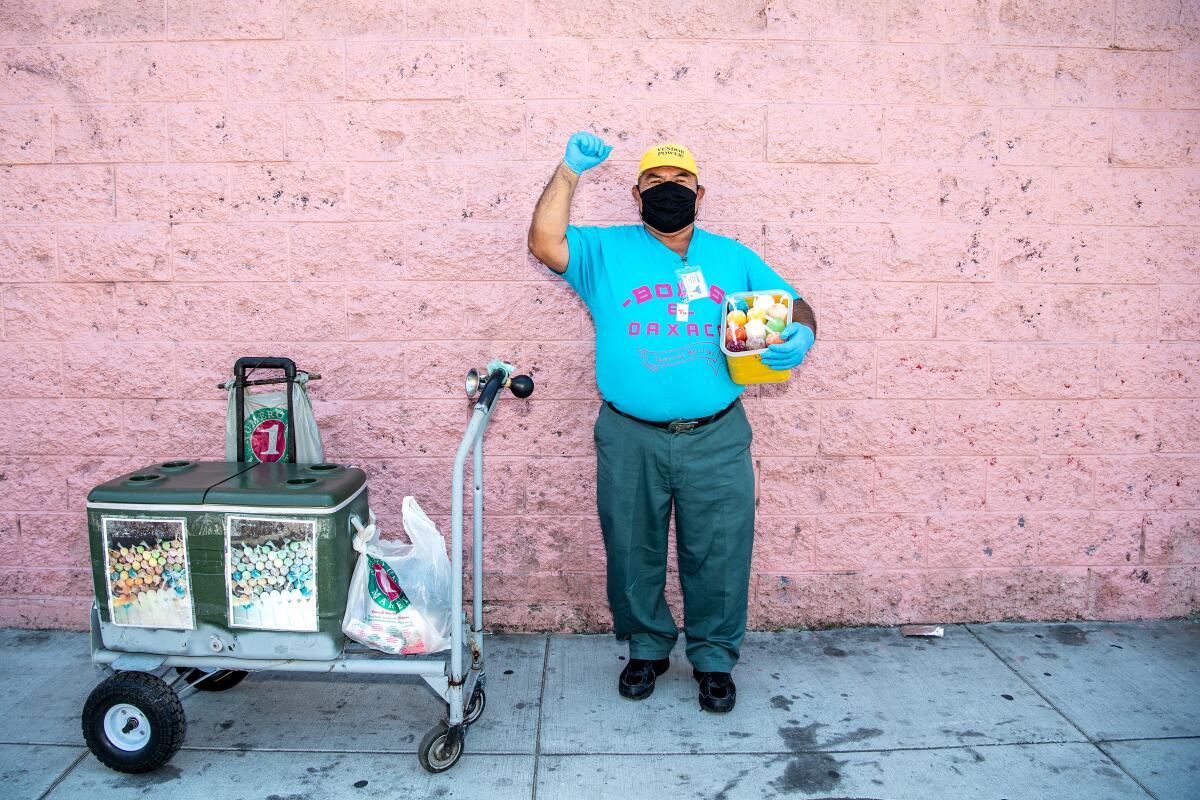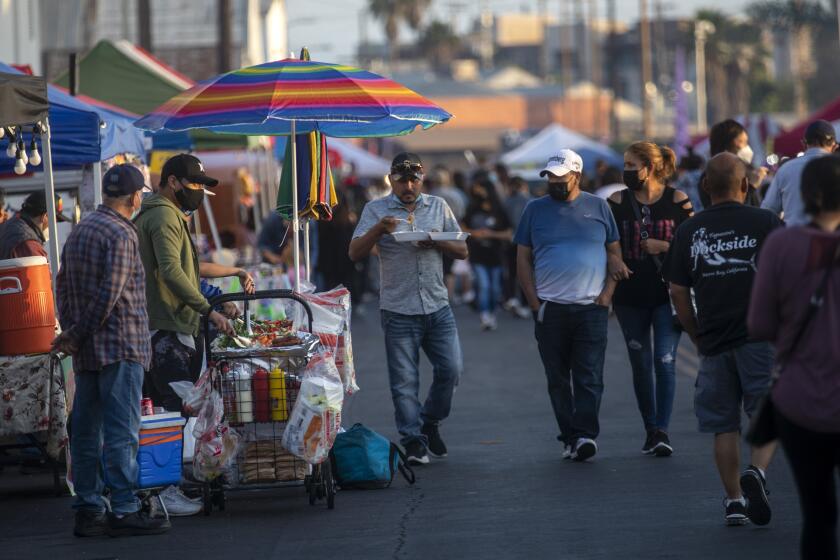Editorial: Most street vendors still can’t get permits. There’s a bill to fix that

- Share via
The taco and hot dog stands that dot Los Angeles sidewalks are beloved for their tasty fare. But for the estimated 10,000 street vendors in Los Angeles County, only about 200 have permits to sell food. The rest are subject to fines and, in some cases, arrest.
State Sen. Lena Gonzalez (D-Long Beach) is trying to change that with Senate Bill 972, which aims to modernize the rules for street vending that often make it difficult, time-consuming or expensive to obtain valid permits.
At issue is the California Retail Food Code, which sets standards for counties to license mobile food vendors. The problem is that the code was designed for larger operations, such as food trucks. Current law does not ban street vending but, rather, requires equipment that is often too expensive and cumbersome for a small operator, including three-compartment sinks and large water tanks. It also prohibits the sale of fruit and the reheating of prepared food on an unenclosed food cart. That includes the taco and fruit stands adored by customers.
Most vendors in Los Angeles County, therefore, operate without permits, risking fines, equipment confiscation and — for workers lacking documents to be in the country legally — deportation, advocates say. Despite a 2018 law that removed criminal penalties for street vendors and legalized street vending, the state’s Retail Food Code still makes it nearly impossible for food sellers to come out of the shadows and become legal operators.
According to a 2021 report by Public Counsel and UCLA School of Law Community Economic Development Clinic, vendors in Los Angeles County must navigate multiple offices, secure various documents and follow a “dizzying process” to apply for a permit.
It’s nearly impossible for sidewalk food vendors to get a permit to operate without fear of penalty in Los Angeles County.
SB 972 would ease that process by revising size and limit requirements of equipment, allowing vendors with carts to more easily obtain local health permits, and legalize the sale of reheated prepackaged food and the slicing and chopping of washed produce and other food items.
Perhaps the bill’s most contentious aspect, however, is the removal of criminal penalties for violating the state’s food code, replacing them with administrative fines to encourage compliance. Opponents of the bill argue that this change would put community health at risk by preventing authorities from ensuring that street vendors follow health, safety and environmental laws. In a joint letter to Assemblymember Jim Wood (D-Santa Rosa), who chairs the Assembly Health Committee, business and travel associations raised concerns about trash dumping, combustible tanks and open flames, alcohol and cannabis sales and other practices that violate health and safety rules.
But SB 972 wouldn’t soften health rules or permit unsafe conditions. Though opponents have warned that the bill removes key requirements, including hand-washing stations, it actually prohibits any vendor from conducting food preparation unless they have access to hand washing and a restroom, and meet other health requirements. The bill also allows local authorities to inspect vendors and their operations.
SB 972 aims to strike a balance. It protects consumers while removing barriers that have made it nearly impossible for street vendors to obtain permits. Street vendors provide an economic and culinary boon to our communities, and the state’s mobile food regulations should reflect that. Most vendors should have been able to get permits long ago.
It’s time street vendors have a chance to sell their products in peace.
More to Read
A cure for the common opinion
Get thought-provoking perspectives with our weekly newsletter.
You may occasionally receive promotional content from the Los Angeles Times.











